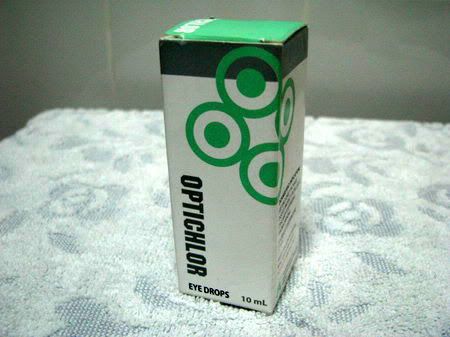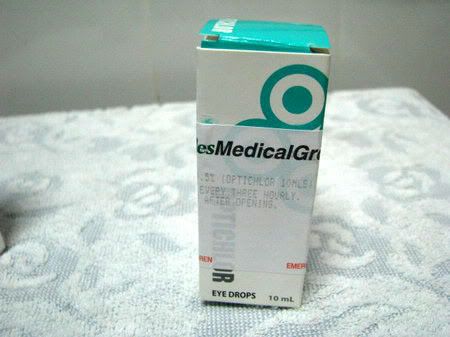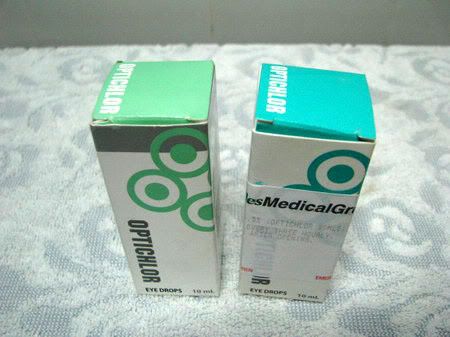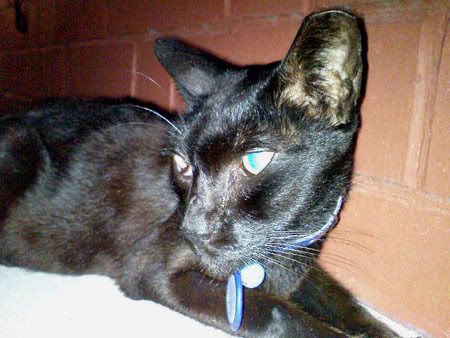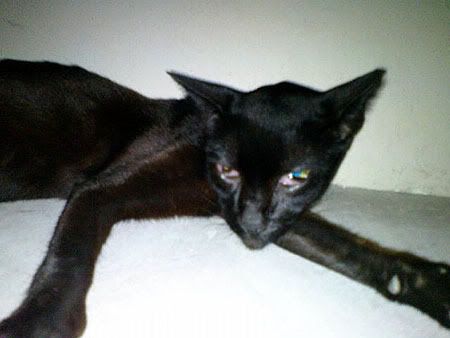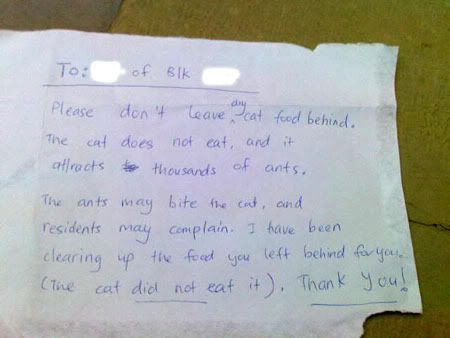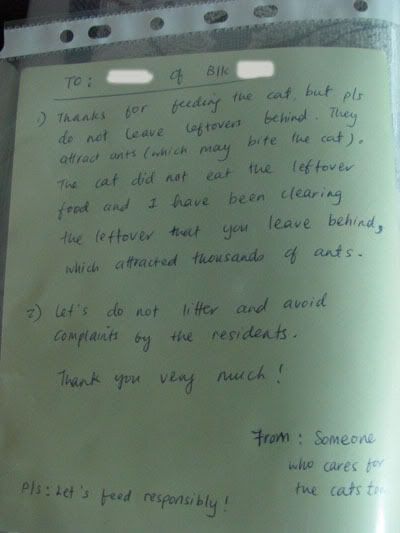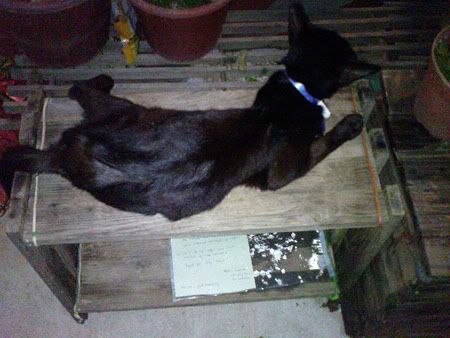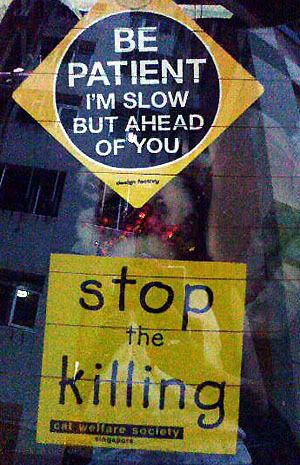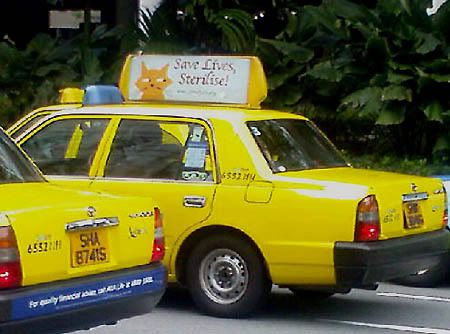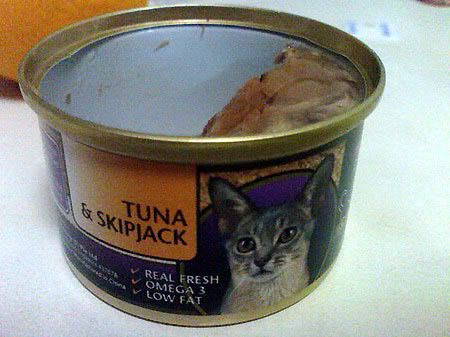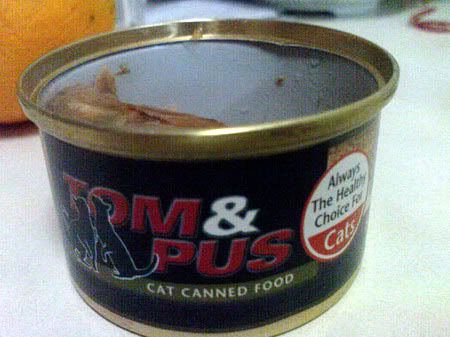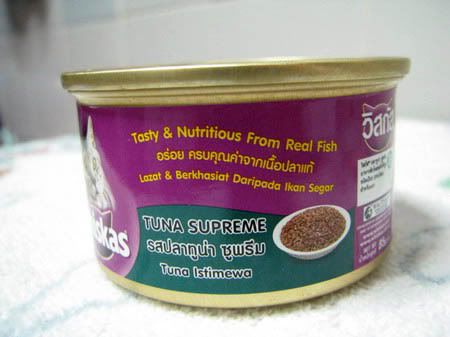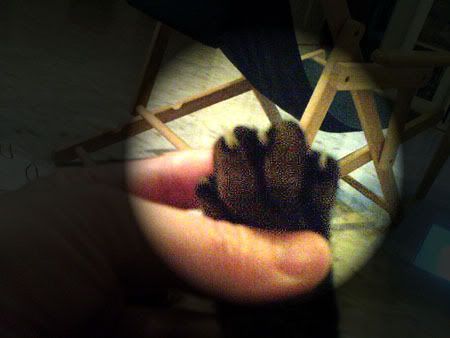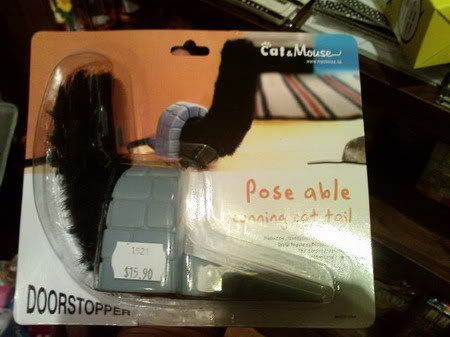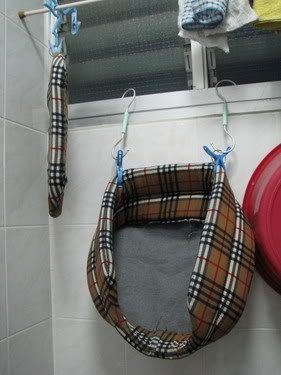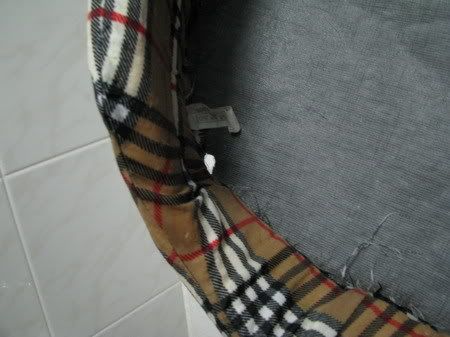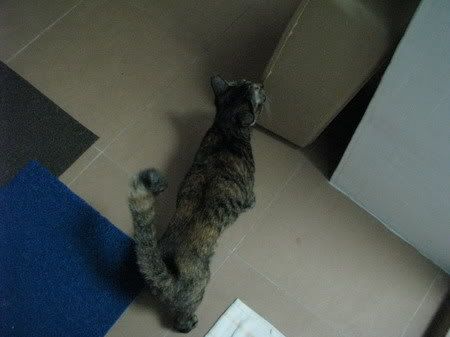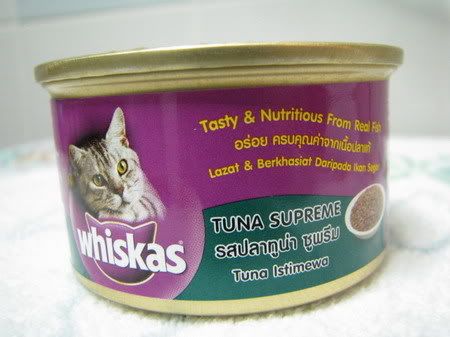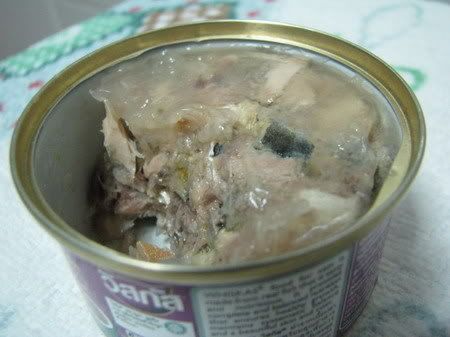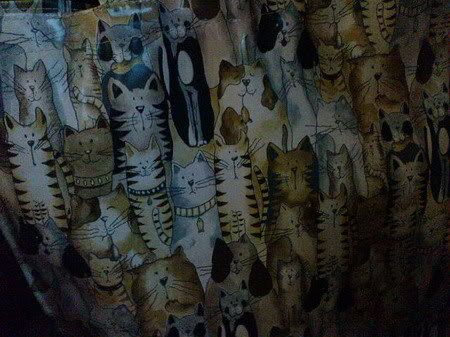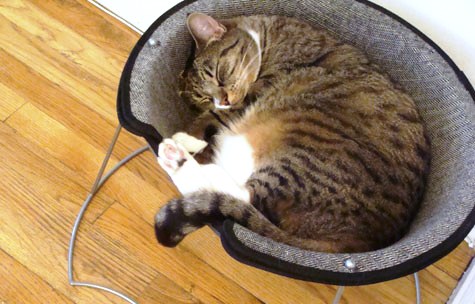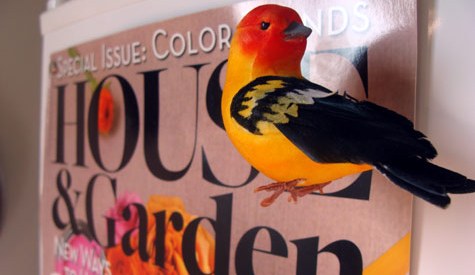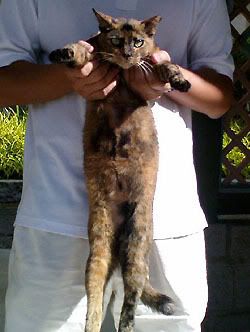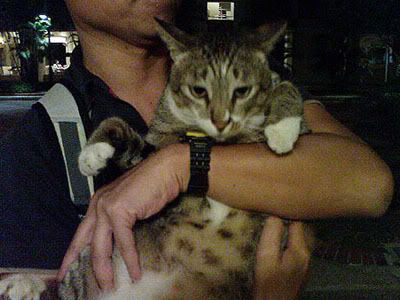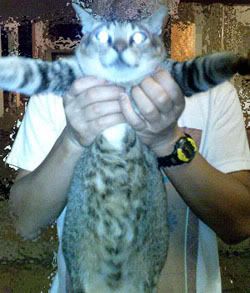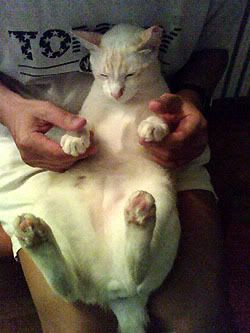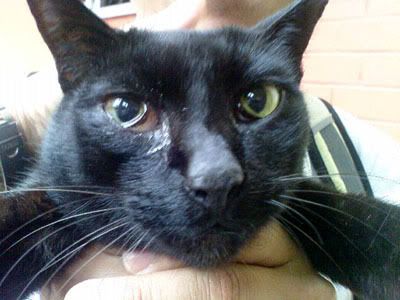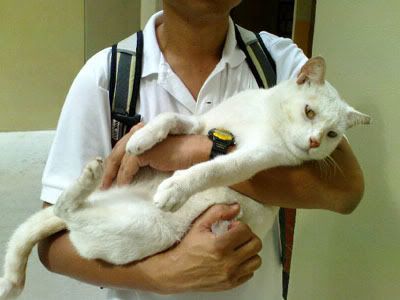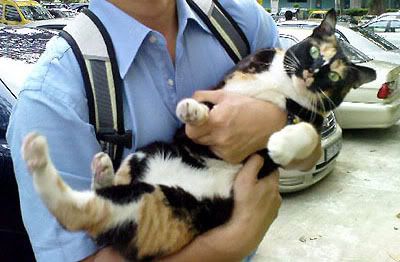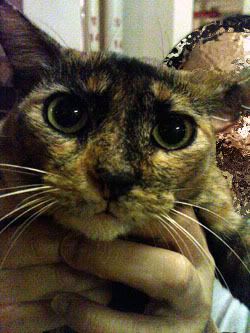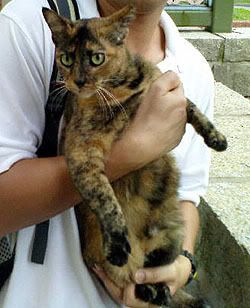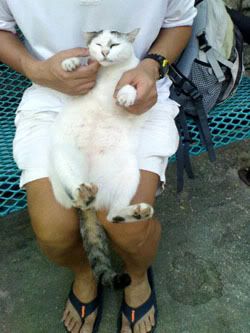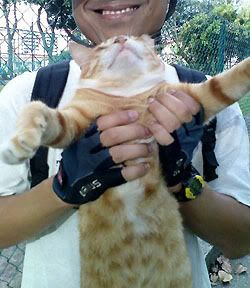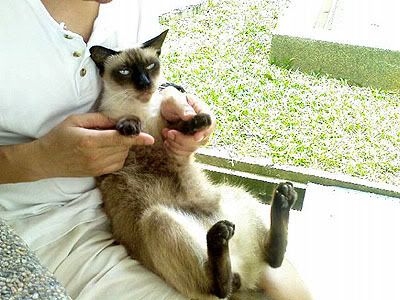Kitty debate divides residents in 'cat town'
CARS ALONG JALAN PEMIMPIN SWERVE DANGEROUSLY TO DODGE CATSBy Ho Lian-yi
July 21, 2008
Pizza despatch rider Syed Faizal Mohsen, 25, would like to know, after getting into a crash because of one.
The Ngee Ann Polytechnic student, who works part-time, was riding a company-issued motorcycleon 6 Jul near Bishan, at Jalan Pemimpin, an area he said is 'notorious for cats'.
He was delivering pizza at around 8.50pm when he saw from the corner of his eye a stray white cat dash across the road.
He braked heavily and was thrown off his vehicle.
Mr Syed Faizal, who had cuts and bruises from the accident, said: 'I'm a cat lover so I didn't want to hit the cat.'
Two security guards who work nearby called an ambulance and he was sent to hospital for outpatient treatment.
The two guards told The New Paper on Sunday that Mr Syed Faizal was not the only person who had had mishaps because of the stray cats.
One of the guards, Mr Affendi Ismail, 37, said he had witnessed some of these accidents.
He said: 'The cats, they just cross the road, it's very dangerous. Sometimes, the cars try to avoid the cat and they will swerve. It's dangerous for pedestrians like me.'
His colleague, known only as Das, said: 'Every week, one or two cats will surely be hit by a car.'
Just a day before the pizza despatch rider accident, Mr Affendi said that he saw a car hitting a cat and injuring it.
And the day before that, a cat was killed in another road accident in the area, he added.
Mr Affendi said that there were many cats in the area because someone had been feeding them.
He claimed that one of the feeders, who arrived after Mr Syed Faizal was sent to hospital, had made sure the cat was sent to a vet.
But when told about the despatch rider who was also hurt, she seemed 'expressionless'.
 MISSING
MISSINGOn 8 Jul, The New Paper on Sunday met the feeder, an executive secretary in her 40s who wanted to be known only as Ms Ong.
She was petite, bespectacled, and was hefting a backpack.
Ms Ong said that what Mr Affendi said was 'prejudiced'. She claimed that she had told him she was 'concerned for both parties'.
She said she knows that the rider was receiving treatment, but what about the poor cat?
'It is also a life,' she said.
As for the cat population boom cited by the security guard, she said that the number of cats there have actually dwindled by more than half since she first started her nightly feeding at least eight years ago.
'Many have gone missing,' she said.
Perhaps pythons have been eating them or residents have been trapping them, she suggested.
Ms Ong admitted that she has had some run-ins with unhappy residents, and said that she has sterilised the cats. She believes that she must have neutered more than 100 cats at the vet in the last eight years.
She agreed to let The New Paper on Sunday follow her on her daily feeding.
Her boyfriend, who lives in the east of Singapore, also joined her.
Pointing to one group of cats, she said: 'There used to be 20 cats here.
'Now only five.'

As for the cats being a traffic hazard, she said that it works both ways. In the last six months, more than 20 cats have disappeared or died, some possibly to vehicle accidents, she said.
'People don't think of cats, they only think of people, and their cars,' she said.
While some people who visited and worked in the area said that the cats did not inconvenience them or pose a traffic hazard, others, such as Madam Ng, 68, a housewife, called them a disturbance.
She said cats sometimes invade her kitchen to get at the food and leave their droppings in her garden.
However, another resident, a pharmaceutical salesperson in her 40s who wanted to be known only as Judy, said that she was surprised that there were complaints, especially about the cats causing traffic accidents.
'You hardly see them,' she said, adding that they appeared only when a feeder was around.
________________________________________________________________
Stray cat problem: Does neutering work?
1. The total number of cats being impounded by Agri-Food & Veterinary Authority (AVA) over the last three years has been falling:# 2005: 5,518
# 2006: 5,134
# 2007: 3,777
2. Does a trap, neuter and return policy work? Sterilising a cat helps to prevent procreation. However, sterilised cats can pose other problems, such as when they go into houses and defecate or take food from the premises. It would depend on the community of the estate if they are willing accept a trap, neuter and return scheme.
3. What is AVA's policy when it comes to people who feed cats?
People should not indiscriminately feed cats and litter the area. They should, as far as possible, find homes for the cats, have the cats sterilised, or surrender unwanted cats to the authorities.
4. What can you do if there is a stray-cat problem in the area?
AVA provides loan of cat traps to residents troubled by stray cats. It is a free service. Residents may contact AVA's Centre for Animal Welfare and Control, 75 Pasir Panjang Road, to arrange for a loan of traps. (Tel:1800-4761600)
- Information from Mr Madhavan Kannan, Head of AVA's Centre for Animal Welfare and Control
________________________________________________________________
SHOULD THE FEEDING OF STRAY CATS BE BANNED?SOME residents at affected housing estates are in favour of making the feeding of stray cats in housing estates an offence because it could cause the population to increase further.
While some people have been fined for feeding wild monkeys, there is no rule against the feeding of stray cats.
Experts have said that feeding monkeys changes their dietary habits and makes them aggressive when they are denied food.
Be they cats or monkeys, Mr Wong Tuan Wah, National Parks Board's (NParks) director of conservation, said: 'We do not allow feeding of stray animals in our parks.' *
Under the Parks and Trees Act, monkey feeders can be fined up to $50,000 and/or jailed up to six months. NParks also increased the composition fine from $250 to $500 in February.
While it is not an offence to feed cats in housing estates, those who do so can be booked for littering if they dirty the surroundings.
Mr Chong Gid Chuan, 38, a manager, said he found the feeding of cats 'very dirty'.
Madam Hau, 55, an assistant general manager, said that she would be fully supportive of a ban. She claimed that one cat that was 'maintained' by a feeder loved to go into her lawn and leave droppings behind, and it was 'very smelly'.
But others were against the idea of a ban. Ms Deirdre Moss, executive officer of the Society for the Prevention of Cruelty to Animals (SPCA), said: 'The SPCA objects strongly to the suggestion of banning the feeding of stray cats. It is an extremely shortsighted suggestion, and not humane.'
SPCA has a voucher programme for the sterilisation of strays, which enables members of the public to take a stray animal to a participating veterinary clinic for sterilisation. SPCA pays the cost.
Mr Marcus Loo, 28, a businessman selling pet products, said that as long as feeding was done discreetly and cleaning up was done afterwards, he had no problem with it.
He said: 'If you really take out the majority of cats in the area, in a month's time, other cats will just take over the territory.'
Video editor Farah Iqbal, 26, said that cat-feeding is not comparable to monkey-feeding, since cats do not become aggressive.
A resident in the Jalan Pemimpin area, who wanted to be known only as Judy, said: 'Some cat-feeders are responsible people who sterilise the cats. If the population of cats is under control now, why can't we feed the cats?'
(Source: http://www.tnp.sg/news/story/0,4136,171225,00.html)
* I laughed out loud when I read this part... :P
 Much has been said about the Palin woman, such as her infamous gaffes that she'd committed when she was interviewed about her knowledge on foreign policy (her answer goes along the line of "Alaska is near to Russian and Canada"), but lots have been said about her being an animal- and environmental activists nightmare. Her list of misdemeanor to animals and possible environmental damage is just too long to mention - just do a search for "Sarah Palin and animals" on YouTube and you'll get an idea.
Much has been said about the Palin woman, such as her infamous gaffes that she'd committed when she was interviewed about her knowledge on foreign policy (her answer goes along the line of "Alaska is near to Russian and Canada"), but lots have been said about her being an animal- and environmental activists nightmare. Her list of misdemeanor to animals and possible environmental damage is just too long to mention - just do a search for "Sarah Palin and animals" on YouTube and you'll get an idea.